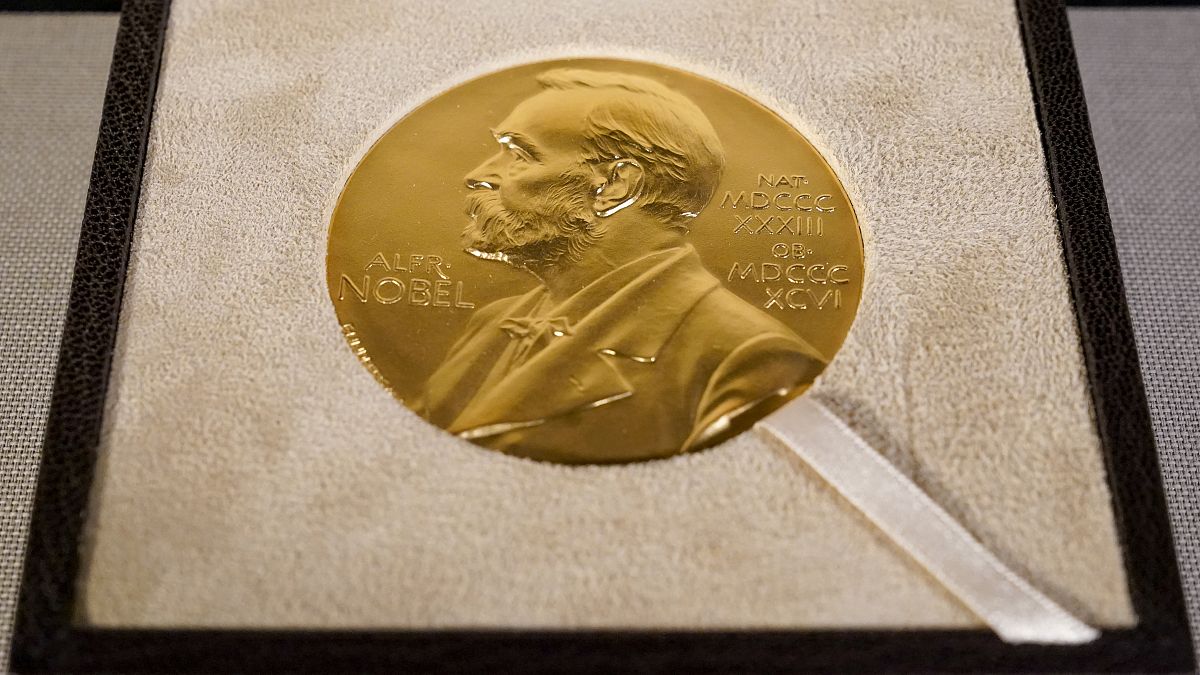The award is the second of six Nobel Prizes to be announced this week and next.
Artificial intelligence pioneers John Hopfield and Geoffrey Hinton won the 2024 Nobel Prize in Physics for discoveries that enabled machine learning with artificial neural networks and set the scene for today’s breakthroughs in AI.
Hans Ellegren, secretary general of the Royal Swedish Academy of Sciences, awarded the prize Tuesday in Stockholm.
Hopfield, who carries out research at Princeton University in the United States, is known for creating a network in 1982 that can retain and recreate patterns in images and other types of data by identifying the values between points, working through them, and updating the missing values.
Now called Hopfield networks, they can be used to recognise images, correct mistakes, and optimise functions in computer science.
In 1985, Hinton, a computer scientist at the University of Toronto in Canada who is known as the “godfather of AI,” used the Hopfield network to create a new model. After being fed examples, the network – called the Boltzmann machine – can recognise characteristics in data and use that to identify specific elements in images or other patterns.
Hopfield and Hinton’s work, which relied on tools and concepts from physics, set the groundwork for modern machine learning.
“The laureates’ discoveries and inventions form the building blocks of machine learning that can aid humans in making faster and more reliable decisions, for instance when diagnosing medical conditions,” Ellen Moons, chair of the Nobel Committee for Physics, said.
Speaking to journalists, Hinton said that AI-driven advancements will be “comparable with the Industrial Revolution, but instead of exceeding people in physical strength, it’s going to exceed people in intellectual ability”.
That could come with incredible societal benefits, but also “the threat of these things getting out of control,” Hinton said.
Hinton spent a decade working on AI at Google before resigning last year, joining a growing chorus of ex-tech employees to warn about the potential dangers of these systems.
Asked about the common AI tools he uses, Hinton said he’s a fan of the chatbot ChatGPT – but with some caveats.
“I actually use GPT-4 quite a lot,” Hinton said. “Whenever I want to know the answer to anything, I just go and ask GPT-4. I don’t totally trust it cause it can hallucinate, but on almost everything, it’s a not-very-good expert, and that’s very useful”.
Nobel Prizes through the years
The Nobel Prizes were created by Swedish inventor Alfred Nobel, who died in 1896. It comes with a cash award of 11 million Swedish kroner, which is nearly €976,000.
From 1901 to 2023, 117 Nobel Prizes were awarded in Physics. The youngest of the 225 laureates was 25, while the oldest was 96.
Last year’s physics award went to Pierre Agostini from Ohio State University in the United States, Ferenc Krausz from the Max Planck Institute of Quantum Optics in Germany, and Anne L’Huillier from Lund University in Sweden.
The trio found a way to create extremely short pulses of light that can be used to measure how the electrons inside atoms and molecules move or change energy.
On Monday, American scientists Victor Ambros and Gary Ruvkun won the Nobel Prize in Physiology or Medicine for their discovery of microRNA, tiny RNA molecules that govern how genes are regulated.
The rest of the 2024 prizes, awarded for advancements in chemistry, economics, literature, and toward peace, will be announced throughout this and next week.
The Nobel laureates will receive their prizes at an awards ceremony in Sweden in December.

